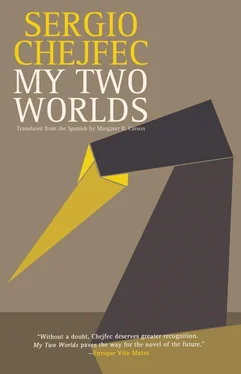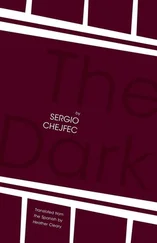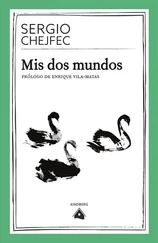I was lost in these ruminations when all at once two women stopped in front of me and began waving their arms at me. I didn’t realize it at first, but they wanted me to leave the bench to them so that they could eat lunch. Each carried a paper-wrapped packet with her lunch, and one woman also carried two plastic forks. I imagined they were probably foreigners, like me but less so, though in any event from a different place. They didn’t speak to me in German — in truth they hardly spoke to me at all — but they managed to communicate everything with gestures. They wore clothes from another era, from which I gathered that they were from somewhere in Eastern Europe, perhaps not far away. Poland or Ukraine, who knows. And, as one often notices in cities, the difference was visible in their skin as well, because at first glance one saw in them the harsh weather of rural life. I can’t say that these women were brusque, but I do remember they were lacking in the often equivocal kindness one finds in European cities.
They were clear and concise. I could say nothing in defense of my sitting there in meditation, and so I sketched a bow of my head that would hide my embarrassment, by way of farewell, and walked away without looking back, blending in with pedestrians who were in a rush to cross at the green light. At times nowadays I look through the photos I took on that trip, and I see the magnificent lake, and there’s my friend, leaning his elbows on the balustrade of a bridge, and beyond him a group of swans near the shore. Several of them have buried their imposing bills and their heads in the water, taking up a position that seems precautionary, as if they preferred to hide and not have their picture taken. Further in the background, though, there’s a solitary swan that, more radically, is making its escape and is well into take-off. I see its half-spread wings, which seem to be coming apart at the joints, its neck stretched forward to the limit, and its feet touching the lake as if it were running on the surface. The creature leaves behind evidence of its steps, bursts of water that explode as waterdrops and turbulence which disappear little by little, as the photo shows: the initial splashes have dispersed and are about to vanish.
When I got to my feet and turned the bench over to the two women, neither conveyed any gratitude by word or gesture, nor even any acknowledgement, not even a glance; and so I felt vaguely annoyed at their shooing me away like a bothersome animal, a swan for instance. I guessed that they probably ate their lunch on that bench every day and always arrived at the same hour, getting together to meet and speak of their families and their memories of the East, and that I had played the role of a quickly remedied setback. Yet another of those visitors who occasionally erred and sat down on their bench. .
So I wondered whether the old man approaching me now, in flight from the sun with his last reserves of strength, wasn’t the customary occupant of the bench. In that case, I could say: in the south of Brazil there’s an old man who every afternoon sits on the same bench in the shade. Just before he took a seat, he greeted me with a nod that for a moment seemed dismissive, though it sufficed to make me forget my displeasure. And after he settled in as far away from me as possible, on the opposite end of the bench, he took a deep breath and began to untie his shoes. He didn’t take them off at first, but merely loosened them. Then he stretched his legs, rested his hands over his stomach, and appeared to sleep. A bit later, with a deft motion of his heels, he did what was necessary to take off his shoes. What with the muffled shouts that arrived from the distance, the trill of the birds, the constant hum of the bustling city and, in particular, the turbulent fountain with its endlessly spurting water, I was astonished to be able to hear my benchmate let out a sigh.
Early that same morning, shortly after leaving the hotel, I’d been strolling along the river, on the other side of town. The day was just getting started, and the traffic on the avenue next to the river seemed unusually sparse, so sparse that the timing of the traffic lights caused the few cars or buses to travel in herds, one after the other, as if they were families of vehicles. In the intervals a silence would fall, during which one could look at the water, at the opposite bank, sharply defined and wild, and cheer up on feeling that a moment from the past had been slipped into the present. It’s odd, I thought, how one abandons the future and seeks to recover the past. But recover wasn’t the word. I didn’t want much, barely a glimpse. Any trace I could discover would be a revelation to me, from the fragile, petrified branch of a fallen tree to a landscape remembered from childhood, though I might never have been there. As is perhaps becoming clear, everything in Brazil was pushing me into the past. Into a hazy past, pre-cerebral, which clouded my perceptions and affected my judgment, demolishing it.
During one of the lulls in traffic, while I was leaning against the railing of a broken-down iron pier that jutted out over the river, I had a sort of revelation. The past, like myself an itinerant, acted like a meander, with no precise, let alone predetermined, direction, which could absorb all our free time, or might simply leave us cold. What’s more, like a sleepwalker who’s forgotten his dream and doesn’t know whether he’s awake. I was in the process of turning into one of its perhaps exemplary victims, and consequently ending up bogged down in sterility. I was just then presenting the first symptoms, I thought: the absence of a desire to know. I had the city at my back, each particle of it like a cell of an immense country, and nevertheless, there I was, stuck on the far end of the ruined pier trying to elicit anything at all from the dense, hazy bush on the opposite bank. This feeling, I can now state, wouldn’t leave me for the rest of that day, or on the ones that followed.
I left the old pier — I recall how the hanging structure trembled with each new footfall, as it had when I’d first stepped onto it — and set off along the path beside the river. Beyond the sidewalk, and before the avenue next to the river, was a spacious parking lot, most likely full on the weekends. In the distance you could make out a group of people, some fifty meters ahead, who seemed to be waiting for more people to arrive, though of course I couldn’t be sure; and behind me, maybe thirty meters back, I’d seen a married couple, or simply a couple, who were preparing to open their refreshment stand. I point this out because of what I’m about to explain; I mean, I saw no one at all in my immediate vicinity. Nonetheless, as I walked along I was able to hear, during one of the breaks in traffic, what sounded like a long, resonant slurp.
A familiar noise, for me: somebody could be drinking maté. I took a closer look and noticed, a few meters off and almost parallel to me, a shuttle bus, the kind used at airports, with its door half-open. From where I stood, I could see two bare feet in plastic flip-flops peeking out from beneath the door. I immediately backed away, as discreetly as I could, stepping a few paces away from the riverbank, so as to see the person hidden behind the door. I could be sure of attracting no one’s attention, but I moved with the caution of a spy, an indecisive voyeur. I then circled nonchalantly around and indeed found the driver, seated on a folding chair, drinking maté. Though I had no way of verifying it, I understood him to have spent the night in the bus, at least that’s how it seemed to me at first sight. From his position he could see only part of the river, in the lee of the tall chimney of an old utility plant that had once supplied power to the city.
I remembered that loud slurp as I thought about the old man’s sigh. The strange coincidence of having detected the two. My benchmate fell into an apparently deep sleep, threatened now and then by a nervous startle, something like a reflex action or an outright tic, or by sense-related incidents, it seemed to me, like swatting away an insect or flinching at a surprise or reacting to an unexpected gap in the continuous noise. I noticed we were sitting under a bougainvillea, similar to the ones you could see in the park’s open spaces; owing to the symmetry of that particular area — its broad esplanade flanked by a double file of benches and trees, and adorned with parterres that were small, taking into account the dimensions of the whole, composed of privet hedges and flowers laid out with a care for balance, to which must be added the fountain as the crowning glory and epicenter of the geometric endeavor — for a moment I thought that the two of us sat on the opposite side, beyond the fountain, under those other bougainvilleas, not this one.
Читать дальше












